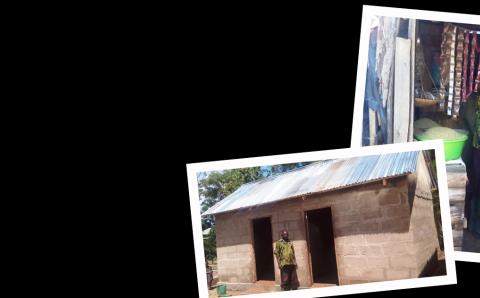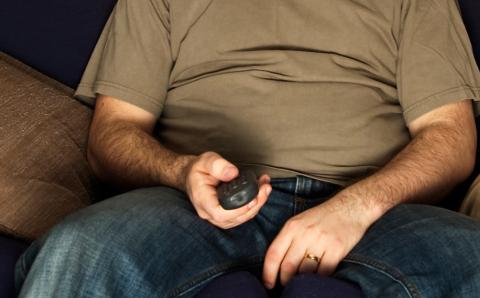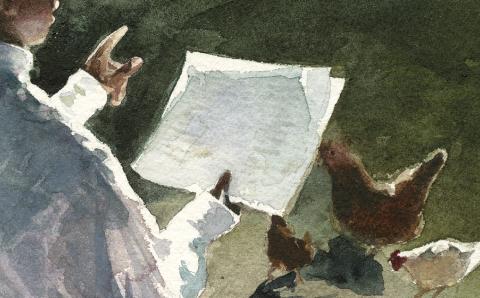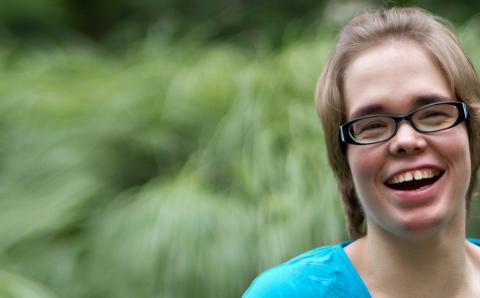After grad school, I sent out hundreds of resumes seeking my first full-time employment. As a new immigrant whose wife was expecting our first child, I applied for almost any job for which I was qualified. After months of futility, and acting on a suggestion, I changed the name on my next batch of resumes from “Shiao Chong” to “David Chong.” Immediately I got three callbacks from otherwise identical resumes.
Research shows that Asian job applicants with “whitened names and resumes” receive a 21 percent callback rate compared to only 11.5 percent of those with Asian-sounding names (tinyurl.com/BannerResume). The disparity is greater for African names. This is an example of white privilege. Thankfully, Christian institutions stood up to racism and hired me as “Shiao Chong.”
In connection with Black History Month, this issue includes a feature on “Confronting White Privilege” (p. 32). One helpful but imperfect analogy for explaining white privilege uses cycling (tinyurl.com/BannerBikeArticle). Our highways and roads privilege cars over bicycles. They were designed and built with the automobile in mind. Bicycles may share the road, but cyclists know how dangerous it can be when cars get too close, drive by at high speeds, or kick up gravel. Yes, some of those situations are the fault of obnoxious drivers. But most car/bike issues probably result from well-meaning drivers not being aware enough.
Similarly, white privilege is a social system that makes people of color more vulnerable, even when white people have no evil intentions. The term is not a label that calls every white person a privileged racist. Rather it describes a flawed system where most people of color are on bicycles, so to speak, in a world designed for cars. Unfortunately, unlike cyclists, people of color can never get off the bike.
Not everyone agrees that white privilege exists. It depends on how you perceive racism. Those who see racism as simply the result of individuals choosing to act in racist ways are likely to be skeptical of white privilege. Racism, for such people, is an intentional choice. If an action is unintentional, they say, then it is not racist. Those who think that social institutions also perpetuate racism, regardless of intentions, are likely to accept white privilege as true.
I believe these different viewpoints have contributed to divisions among Christians on various issues of race, from the Black Lives Matter movement to the Doctrine of Discovery. It is probably why some Christians don’t see how colonialism is relevant while others see its effects on our society every day. Why some say there are systemic racial issues in police enforcement while others say that assertion is an insult to those who serve and protect. Why some Christians seem to minimize what other Christians consider racist overtones in the U.S. president-elect’s (at the time of this writing) public statements.
If there are fundamental differences in the way we view racism, then we are constantly talking past each other. To move beyond this impasse, we need to listen to the stories and experiences of people of color. Develop cross-cultural friendships. Walk in other people’s shoes. Our Office of Race Relations has plenty of resources to help us (crcna.org/race/resources-race-relations).
Racism spans cultures and ethnicities. I’ll bet there is “yellow privilege” in China. Recognizing racism is not about blaming any one group. Rather, it’s about together repenting and standing against sin. I believe that systemic sins, like racism, are part of “the powers of this dark world” (Eph. 6:12). Let us, therefore, stand together against racism.
Related Article
About the Author
Shiao Chong is the former editor-in-chief of The Banner. He served as editor from 2016 to 2025. He attends Fellowship Christian Reformed Church in Toronto, Ont.
Shiao Chong es el redactor jefe de The Banner. El asiste a Iglesia Comunidad Cristiana Reformada en Toronto, Ont.
시아오 총은 더 배너 (The Banner)의 편집장이다. 온타리오 주 토론토의 펠로우쉽 CRC에 출석한다.
You can follow him @shiaochong (Twitter) and @3dchristianity (Facebook).









